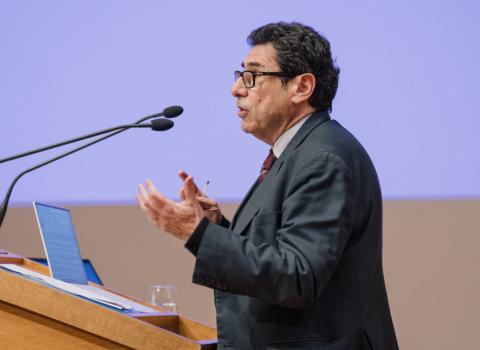Dramatic U-turn by Europe’s premier research agency casts doubt on feasibility of scheme to make scientific papers free to read as soon as they are published

The governing body of the European Research Council (ERC) has dealt a severe blow to radical open access initiative Plan S, announcing it is withdrawing support for the scheme.
“During the past six months, the ERC Scientific Council has intensified its internal debate and reached a unanimous decision to follow a path towards open access implementation that is independent” of Plan S, the agency said.
Plan S, which is due to launch next year 2021, aims to make science papers free to read and reproduce as soon as they are published.
Research funding bodies that have signed up to it include the World Health Organisation, the Wellcome Trust, the Bill & Melinda Gates Foundation, and 17 – mostly European – national funding agencies.
The European Commission has also said it will follow the plan. It was the former EU director-general for research Robert-Jan Smits, now president of Eindhoven University of Technology, who started the initiative in 2018 and drove its initial stages.
The ERC’s 19-member ERC scientific council, made up of such luminaries as Nobel Prize winner Ben Feringa and director of the European Molecular Biology Laboratory Janet Thornton, says its decision to remove support for the initiative is based on a need to “pay closer attention” to a number of aspects of the plan “whose importance has been rather underestimated”.
“Most prominent among them are researchers’ needs, especially those of young researchers who represent the future of European science and innovation,” the council said.
Plan S is fuelled by universities’ and funders’ growing impatience with the high cost of subscribing to science journals.
However, critics of the scheme have long argued that it will harm research careers, by limiting publication options.
The publication of research results in so-called hybrid journals that combine paywalls and open access content, will be “non-compliant” with Plan S from January 1, 2021. This stipulation applies to journals without a “transformative arrangement” – meaning those that have not committed to moving away from a pay to read subscription model, to a pay to publish framework.
To the ERC’s scientific council, pay to publish “will be detrimental, especially for early career researchers, researchers working in countries with fewer alternative funding opportunities or working in fields in which open access policies are more difficult to implement.”
In response, the Plan S consortium, known as Coalition S, said it remains firm in its view that support for hybrid journals has failed to accelerate the transition to full and immediate open access over the past two decades.
“The already scarce funding in the Horizon Europe Framework Programme should not be used for the payment of publication fees in hybrid journals,” the group’s response read.
Last year the Plan S consortium of funders named Johan Rooryck, professor of French linguistics at Leiden University in the Netherlands, as its new “champion”, with a brief to promote and develop the plan worldwide.
Coalition S also notes that the ERC scientific council was “involved in drafting Plan S”, and how in 2019 it “warmly welcomed the updated Plan S and implementation guidelines”.
While the loss of support from Europe’s premier research agency will hurt the scheme, Plan S backers say they “remain united in working together towards more open and equitable academic publishing.”
The ERC scientific council, in its statement, says ERC is committed “to implementing full and immediate open access” and will continue to “support the principles underlying” Plan S.





 A unique international forum for public research organisations and companies to connect their external engagement with strategic interests around their R&D system.
A unique international forum for public research organisations and companies to connect their external engagement with strategic interests around their R&D system.